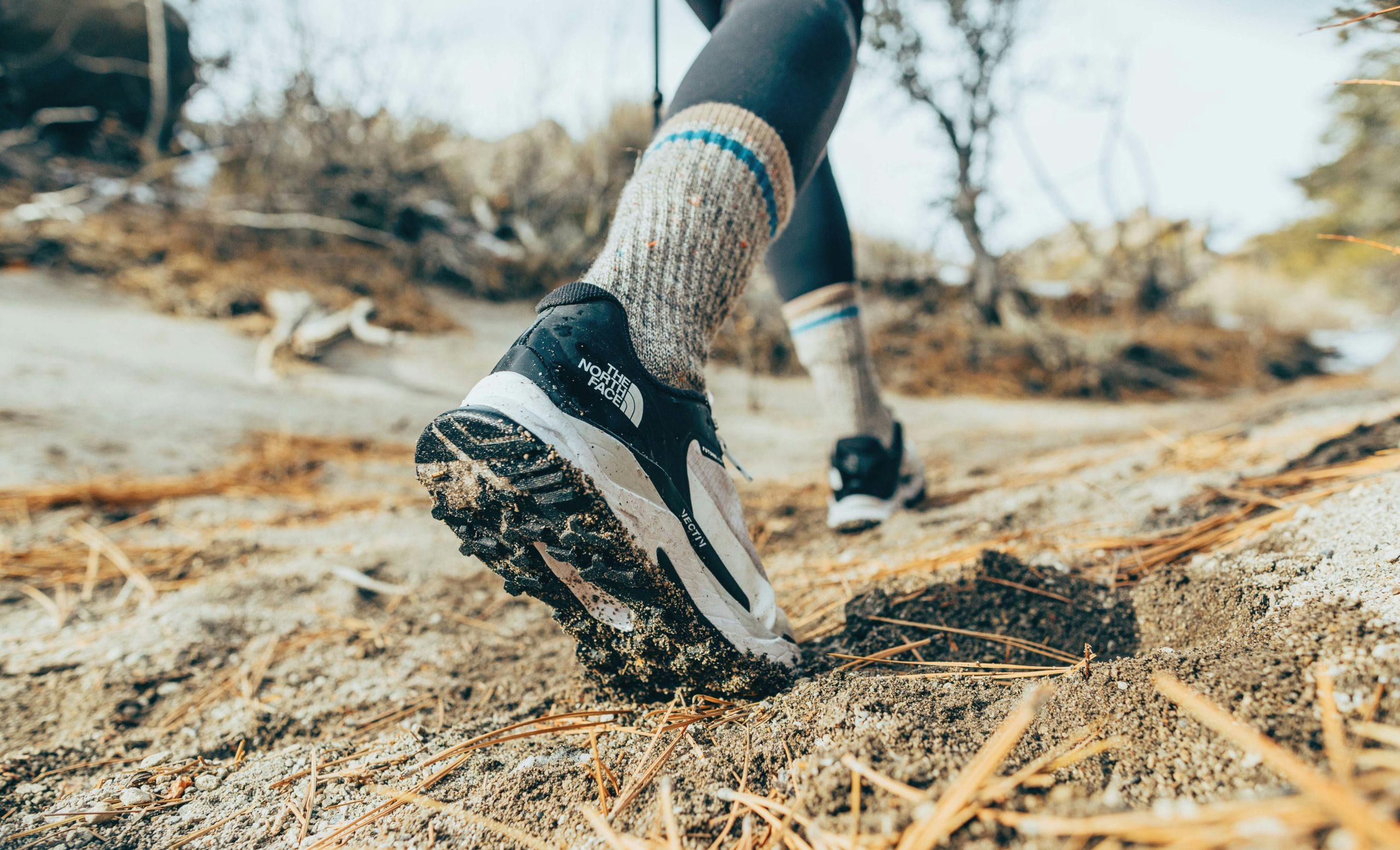At what is the halfway point for most Walk1200km participants, Wilderness spoke to two people undertaking great feats of endurance, to find out what motivates them and what lessons we can apply to our own challenges.
Motivation can be inside, alongside or ahead, but it’s often solitary and heavy.
Mike Cosgrove will probably be having a hot shower as you read this, but when I caught up with him, he was roughly 900km across the 1200km Nullarbor Plain in Australia. Nullarbor means ‘no trees’ (nullus arbor in Latin). The Australian indigenous word for the plain is Oondiri – The Waterless. So why there?
Mike’s raising money for Gumboot Friday, an initiative that supports young people with mental health struggles. “I wanted it to be hard because I know that people going through issues of mental health have it much harder than what I’m doing here,” he says.
“On my shoes I’m carrying the names of eight family members and friends. They’ve all taken their own lives. That causes a lot of heartache. We’re trying to prevent it from getting to that stage.”
That’s Mike’s external motivation. Alongside this sits the planning. Mike has climbed mountains on every continent, he climbed the four highest peaks in the North Island in one day, and he has run 100km ultra-marathons.
“There are so many things you’ve got to put in place to reach the top of a mountain. It’s like the rungs of a ladder.
“I’ll put in mini challenges, like the #microchallenges done with Walk1200km – that’s awesome.”
Mike’s approach combines optimism and pragmatism: “Eighty per cent is in your head,” he says, “the rest is weather and money and fitness.”
And he keeps things in perspective: “This is not forever. The pain, the hardness – in an hour’s time you’ll be standing under a hot shower. Everything will come right.”
For Mike, ‘right’ is relative. Some nine years ago he was t-boned on his motorbike and nearly lost his leg. “They were going to take it off. That on its own was a real motivation to get going again. I was two years on crutches, 13 surgeries, and it motivated me. I wanted to prove that my leg was still good; I wanted to get out, do some stuff. I can never run again, but I can walk.”
He has twice walked a marathon in under six hours. “I’ve had to be realistic. I’m not the sort to give up. Maybe I try just a bit at a time. A bit of success gets the endorphins running.”
There are always challenges ahead, and rewards. Both are motivating, as are people. Nedd Brockmann inspired Mike: he was 23 when he ran across Australia. And Marshall Ulrich, who ran across America when he was 57. “Many people have done far more than me, so surely I can do this.” And the rewards? “A hot shower.”

Jono Ridler became the first person to swim the almost 100km distance from Aotea to Auckland
Jono Ridler seeks out people who have already accomplished a challenge, then “annoys them with questions about their experience”. But when planning to swim from Aotea Great Barrier Island to Auckland, there was no one to ask; no one had done this before. On May 3, Jono completed the longest, unassisted, continuous open-water swim in New Zealand’s history: almost 100km, 33+ hours from Karaka Bay to Campbells Bay. He encountered two-metre swells and 30-knot winds. But “there wasn’t any kind of recognisable marine life.”
Jono joined forces with Live Ocean Foundation to create Swim4TheGulf, with the objective of raising awareness of the health of the Hauraki Gulf. It was a natural step. Jono spent his summers on Great Barrier Island when he was growing up, and has witnessed the degradation of the Gulf. He wanted to put action behind his convictions around marine conservation.
The massive swim was also a continuation of previous accomplishments: between 2019 and 2022 he swam the Triple Crown of Cook Strait, Foveaux Strait and Lake Taupō. “I was kind of audacious enough to think I could do this swim.”
When Jono started out swimming in the ocean – 2km, 5km, 10km – he was interested in his own physical, mental and emotional capabilities “and how far I could push myself … understanding my boundaries. And I’ve realised those boundaries are flexible, and that motivates me to keep on pushing, further and further. Every time I do these things I get immense satisfaction. So there’s a strong intrinsic drive versus the extrinsic – the achievements side of things – which isn’t as alluring. The ocean conservation is next-level intrinsic for me. It’s something I’ll fight for for a long time. And the combination of those two things is incredibly powerful as well. It feels right in a lot of ways, really natural.”
Jono is self-coached, and goals are important in his training, as is discipline. Jiu jitsu and judo have cemented mental discipline and resilience: “You’re in some pretty uncomfortable situations. You know people will be trying to chuck you out or contort your body in a way that is not natural and you’ve got to sit with that pain.”
Training plans and targeted exercises, like swimming while fatigued and swimming at night, were all part of the preparation ahead of his Gulf swim. A shoulder injury was not. “I had to throw out some of the training. I had some anxiety around that, but you have to be flexible with life while keeping an eye on the prize, whatever that is for you.”
And what’s Jono’s next endeavour? “I’m doing the Ice Mile Challenge in July at St Bathans – a 2.5km swim in less than five-degree water, so that will be fun.”








